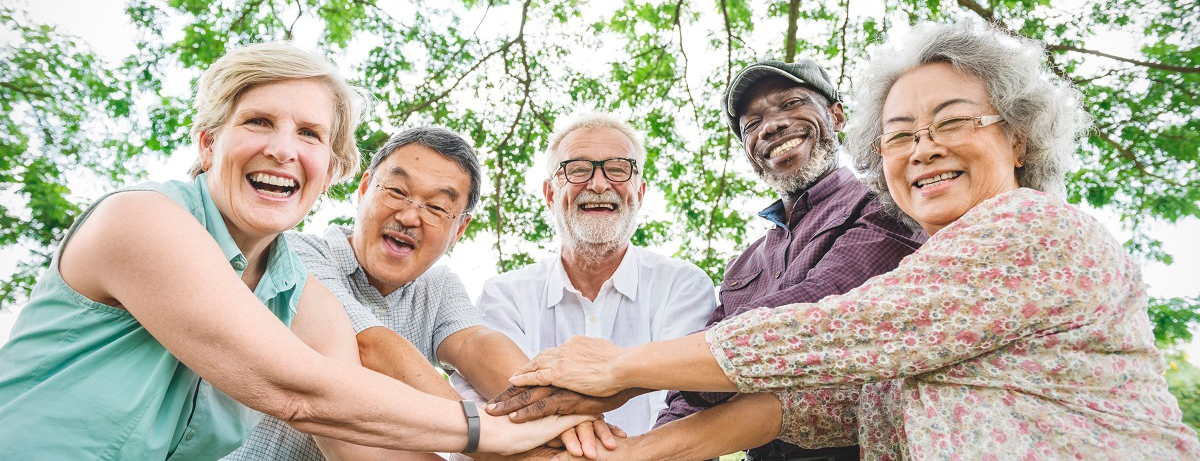Life Over 65 Doesn’t Have to be Lonely

When you think of health risks, smoking and being overweight probably top the list. But there’s a surprising hidden health threat that affects up to 30 percent of adults over 65 — loneliness. Loneliness is one of the most formidable obstacles to health and quality of life for the nearly 35 million Americans age 65 or older. As more of us join that generation — which statisticians predict will reach 78 million by 2030 — the threat of loneliness will grow.
A hidden enemy?
Unfortunately, recognizing this enemy isn’t as easy as we might think.
“Loneliness is not what most people think it is, and that’s why many seniors don’t see the warning signs soon enough to head off disaster,” says Marcia Ory, Ph.D., M.P.H., professor and director of the Active for Life program at Texas A&M University. With loneliness, says Dr. Ory, a person “disconnects socially from the world around them, isolating themselves from involvement with people.” Living alone isn’t part of every case.
It’s a way of life
“We assume that an 80-year-old woman living by herself in an apartment must be lonely, yet she may have plenty of positive social interaction with others outside the home,” Dr. Ory says. “At the same time, we think that a 70-year-old man living with his son’s family cannot be lonely, yet he spends all day in front of the TV set and shuns all social activities.”
It’s how you live that makes you lonely, adds Carol Ryff, Ph.D., director of the Institute on Aging at the University of Wisconsin–Madison. “Our research, and that of others who study the social habits of the elderly, shows that seniors who are ‘socially integrated’ — in other words, connected to others in an active, positive way — are in better health, retain more mental sharpness, and in general live longer than those who become ‘social recluses.'”
Prone to isolation due to changes
Seniors are more likely than younger people to experience changes that, if not handled properly, can isolate them. Examples include:
- Health problems that reduce or bar mobility
- The death of a spouse, relative or close friend
- A drastic change in routine, especially to a boring or inactive lifestyle after retirement
- Loss of contact with family or friends who move or have less time
Even worse is loneliness that results from a deeper problem. Lack of involvement in life as a whole (not just social activities) may signal depression, says Roy F. Baumeister, Ph.D., a Florida State University social psychologist. “You have to treat the depression first before you can have any hope of returning them to normal relationships with others.
Five Ways to Avoid Loneliness
- Get connected. Rebuild your social network or create a new one if old friends aren’t around. Seek out social groups or activities for older adults at your place of worship, community center or local recreation department. “Don’t wait for others to reach out to you; get to them first,” Baumeister says.
- Volunteer your time. Not only will you meet people, but you’ll feel good about yourself, too.
- Get active. Take a walk, ride a bike, study tai chi or join a ballroom dancing group. The activity doesn’t matter as long as you get up and move. Research shows a link between regular exercise and better quality of life.
- Get educated. Go back to school. Communities, colleges and organizations offer learning opportunities for older adults in everything from agriculture to zoology.
- Get online. “The internet is a wonderful means of social communication and interaction, especially for those seniors who are not mobile,” Baumeister says. “It’s hard to feel lonely when you can virtually visit the Sistine Chapel or play chess with a newfound friend in Australia.”
MEDICAL DISCLAIMER: The content of this Website or Blog is not intended to be a substitute for professional medical advice, diagnosis, or treatment. Always seek the advice of your physician or other qualified health provider with any questions you may have regarding a medical condition. Never disregard professional medical advice or delay in seeking it because of something you have read on this Website or Blog.
If you think you may have a medical emergency, call 911 immediately, call your doctor, or go to the emergency room/urgent care.
